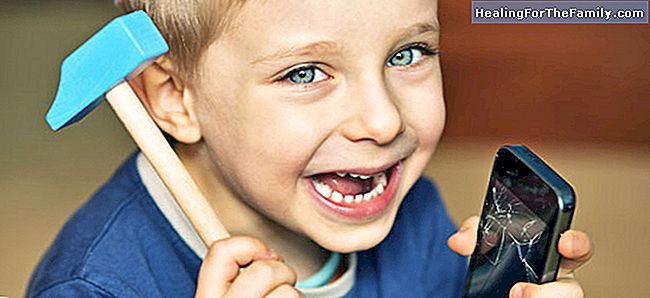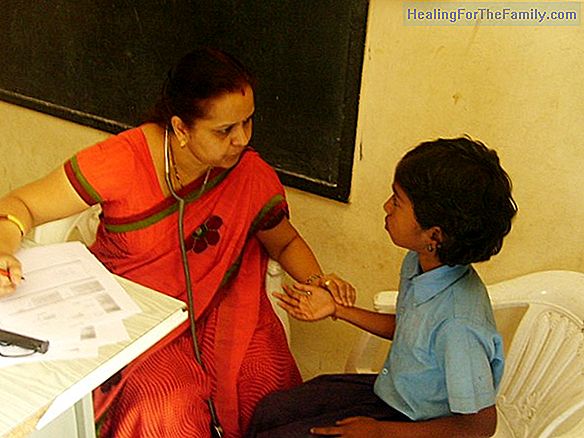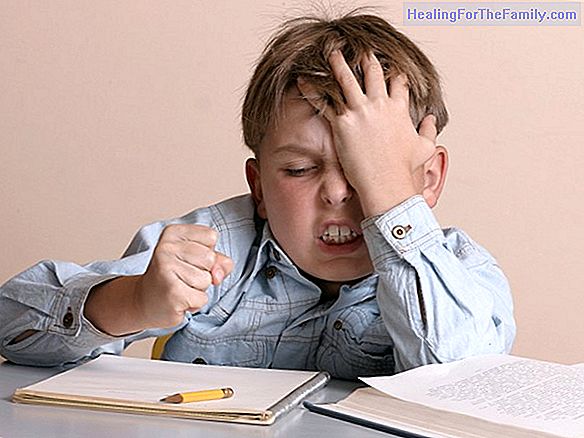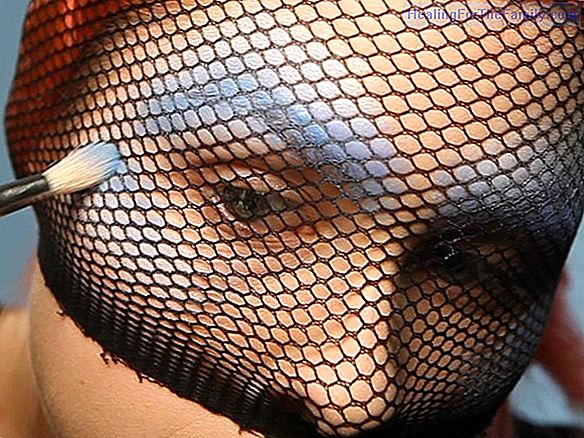Things you must do before punishing the child
How many times have we said or heard the phrase ... "until I scold or punish my son does not listen to me", "I have already punished him with everything and remains the same, no he does it "," it does not matter if you punish him, it seems he does not care, after a while it's the same, it does not t
How many times have we said or heard the phrase ... "until I scold or punish my son does not listen to me", "I have already punished him with everything and remains the same, no he does it "," it does not matter if you punish him, it seems he does not care, after a while it's the same, it does not take effect ".
Punishments are usually not effective on children. We punish them without a TV, without a tablet, without a bicycle, without toys ... We can not take them away anymore, and even then they still have behaviors that we do not like. It's time to change tactics and do other kinds of things before punishing the child.
Consequences of punishments in childhood

Punishing the child has negative consequences on the child, and also does not usually help us get what we want, which is that the child stops doing something or changes a behavior. When I punish the child I teach him that he is "bad", I give him negative data for the construction of his self-esteem and self-concept (I am bad, I am a pig, I am selfish, I am a pegón). Children usually act according to what they believe about themselves, and if they think they are bad, they will behave badly, because they are like that.
In addition, punishment usually frustrates a child a lot and does not help him improve his behavior, normally he will get more angry and "behave worse". What can lead to reprimand, we get even more angry and put an excessive punishment (a week without watching TV, do not go to a friend's birthday ...). And overcast the child is negative because in the end, they get used to having nothing, so it does not matter that we leave him another week without a bicycle.
The effective alternative to punishment is in the rules, the limits, in establishing consequences for their actions and of course, and most importantly, reinforcing their appropriate behaviors so that they are the ones that are repeated.
What to do before punishing the child
Children often misbehave to get our attention. Children can make associations of the type, "every time I hit my little brother, mom and dad listen to me, so in order to listen to me, I have to hit my little brother", although paying attention to him means scolding and punishing him, the case is that has the attention of the parents. Therefore, we must adopt a preventive strategy, that is, when the child is at home playing, or in the park and is calm, we will reinforce that behavior, congratulate him for how quiet he is, or because he has left a toy. That is to say, we focus a lot on positive behaviors and reinforce them, instead of focusing only on negative ones, (thus we can only reinforce them).
When we punish the child, we usually have the clear objective that we do it so that the behavior does not happen again, that the child learns that this is not done. But more positive than punishing him, is helping the child to achieve goals and objectives, and in order to get them, he has to know what we expect from him or what he has to do at certain moments, (if I call him to come, eat everything, collect the toys).
Another important point is to establish consequences for the actions of children, (consequence is not the same as punishment). For example, if we do not collect the toys tomorrow we can not play with them, you can play with the ball, the bike, you can watch TV, but you can not use the toys. We do not punish without playing, (so that he gets bored and learns), but he will not be able to use that toy, but he will be able to use others. Or, for example, if before you fall asleep, it takes 20 minutes to brush your teeth, you will lose reading time. We do not leave it without a story, but if it takes more than a certain time, that time is lost from the next activity.
Therefore, rather than punishing the child, we must teach him that what we do has consequences and I must accept them (, (like when I miss a circulation rule and they fine me, for example).In short, before punishing the child, I must stop to think about what I want to achieve, and how I can achieve it without having to go so far as to punish the child, which also does not help us to change the behaviors.
Some guidelines:
- Anticipate what you want your child to achieve / do. Set goals
- Reinforces positive behaviors and corrects negative ones.
- Establish clear rules and limits and consequences when these limits are skipped.
If I change the perspective, if I reinforce the positive, if I set clear norms and limits and have coherent and appropriate consequences for the children's behaviors, we will avoid punishing the child, getting angry and reaching situations that are often unpleasant and frustrating for everyone.












